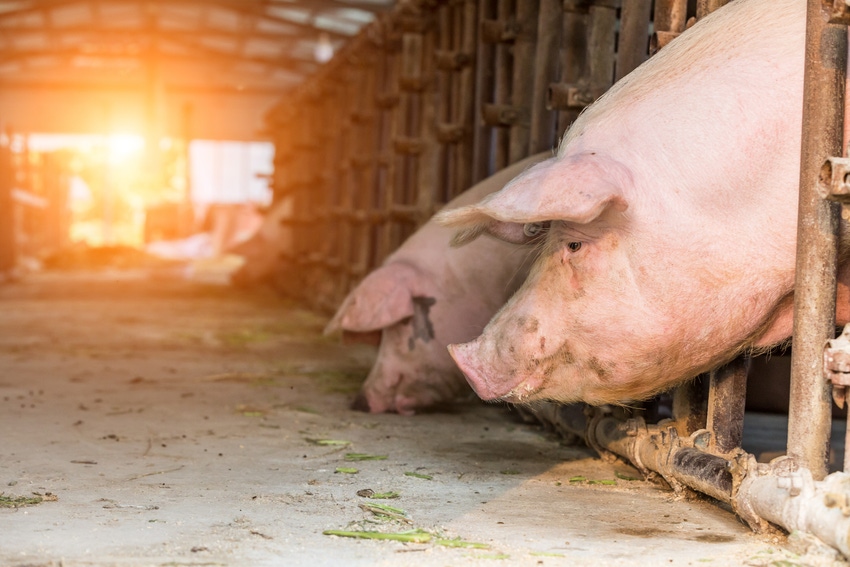Meeting aims to develop biosecurity and border control recommendations to help curb spread of African swine fever and its devastating consequences.

The 4,480 ongoing outbreaks of African swine fever (ASF) in Asia are a threat with global implications, as the region accounts for at least 50% of the world’s domestic pig production and pork is one of the major sources of animal protein, according to an announcement from the World Organization for Animal Health's (OIE) Regional Representation for Asia & the Pacific.
Unfortunately, reducing the impact of ASF is complicated by the variety of pig production systems coexisting in the region, OIE said.
Along with the U.N. Food & Agriculture Organization (FAO), OIE has convened a two-day meeting in Tokyo, Japan, of animal health experts and national authorities to try to find solutions adapted to the Asian context. Collectively known as the Global Framework for Transboundary Animal Diseases Standing Group of Experts on ASF, participants discussed ways to prevent further ASF spread. Agreed actions will build on those implemented after the group’s first meeting in April 2019.
Japan's Minister of Agriculture, Forestry & Fisheries Takamori Yoshikawa opened the meeting and stated that developing measures tailored to this region is important, such as tightening border control measures to ensure that all travelers, prior to departure, do not carry out or carry in items that pose risk of spreading ASF. He also stressed the importance of on-farm biosecurity in order to prevent entry of diseases onto farms as well as a continuous education and awareness campaign for all relevant players, including producers, veterinarian and travelers.
OIE regional representative for Asia and the Pacific Hirofumi Kugita noted that ASF "is causing losses and a huge impact to the swine industry in all countries the disease has occurred. With no [existing] vaccine or cure, countries rely on biosecurity and border control as the main tools to protect their pig populations and secure the livelihoods of farmers that depend on them.”
Wantanee Kalpravidh, regional manager of the Emergency Centre for Transboundary Animal Diseases of FAO’s Regional Office for Asia & the Pacific, noted that “together, we aim to agree and share a clear set of recommendations to help countries in the region implement stricter biosecurity and border control in order to reduce the spread of the disease.”
Kugita and Kalpravidh reiterated that the consequences of ASF in Asia should not be underestimated and emphasized that to minimize the long-term effects of ASF, strong collaboration from the international community is needed.
Meanwhile, in Europe, more cases of ASF are being reported, with the first case discovered in Slovakia and new several new outbreaks in Hungary.
About the Author(s)
You May Also Like

.png?width=300&auto=webp&quality=80&disable=upscale)

